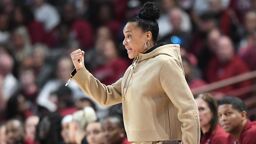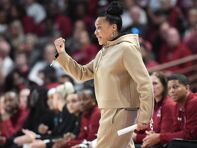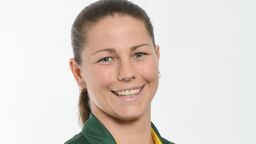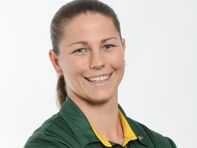Ray Libman dared to ask the question no one had ever asked before.
When the trans athlete called US Figure Skating in 2001 to inquire what their transgender policy was, the woman on the line was dumbstruck. It was before the International Olympic Committee had offered any guidance — The Stockholm Consensus, which created one of the first paths to participation for trans athletes, wouldn’t be released until 2003.
Libman was a trans man, and he wanted to compete in the male category.
No one had ever asked the question.
“At that point I had started transitioning,” Libman told Outsports, “and essentially when I called the headquarters, the woman said they’d never dealt with it, and the governing council was meeting in a couple weeks.”
When they got back to him, US Figure Skating said that because the IOC didn’t have a policy, he would be ineligible to compete in the male category in any competitions, even in the United States. Libman let the woman at US Figure Skating know his next outreach would be to the ACLU.
“Let me call you back,” she said.
When US Figure Skating reached out a second time, they told him he was ineligible to compete in International Figure Skating “qualifying” events. However, he could compete in local, non-qualifying competitions.
Libman went full-speed ahead. He entered local competitions, but now he was doing so in the male category. And actually, many of the men in the sport appreciated it.

At local levels, figure skating is a lot of women and very few men. Libman said his male competitors were largely thrilled to see him on the ice.
“They were cool because the guys were happy to have someone to compete against. I was surprised. It was nice.”
At the same time, Libman was competing internationally in the “theater on ice” competition, which is not an Olympic-sanctioned event.
Theater on Ice is, according to US Figure Skating, “a form of competitive figure skating that combines the grace of figure skating with the excitement of theatre and dance.”
While he wasn’t sure he could compete in the non-gendered team event, he figured he’d barrel through anyway. He’d apologize if someone took issue.
It worked out.
All the while, Libman said people in the figure skating community were well aware of who he was. He had competed in the girls competition at a younger age. Even then, he says, he was obviously LGBTQ.
“Certainly growing up in figure skating as a visibly gender-non-comforming person, people knew who I was. I hadn’t changed my name at that point, so you could figure out who I was pretty easily.”
The only people who cared while he was competing, Libman said, were some coaches. He seemed to have a bright future in the female category, and they wondered why he’d leave that behind to compete in the male category, with less of a chance of winning medals.
Yet the worst responses he got was when he stopped skating competitively and began coaching.
The world of figure skating is relatively small, insular, and coaches are fighting for students, Libman said. That’s when some coaches outed him in hopes of driving some students away from him and to them.
Sadly, their transphobic plan worked.
“I had one parent, I’d been working with her daughter for eight or nine months, and her daughter was improving. This other coach outed me and the parent told me I should never be working with children, and how dare I work with her daughter without telling her.”
Mind you, there was no competitive issue here. This was Libman simply teaching the young girl how to skate better.
Brutal.
“Skating is actually a conservative sport,” Libman said. “My livelihood depended on it, and I didn’t want to rock the boat.”
That is why you likely have never heard his story before. Libman felt for years that, despite people in the figure skating world rumbling about his gender, he needed to keep his trans identity a secret.
He’s now getting his MA in Applied Sport and Performance Psychology at Holy Names University, a Roman Catholic school where Libman says he’s “had an absolutely positive experience. The nuns know me, they know I’m trans. I worked in the athletics department and I’m out as trans there. Everyone has been really supportive. It’s been wonderful.”
As he finishes his education at another school — Holy Names plans to close this year — he’ll be doing so while advocating for trans rights, and as a example of the power of visibility himself.
You can find Ray Libman on Instagram and on Twitter.







































